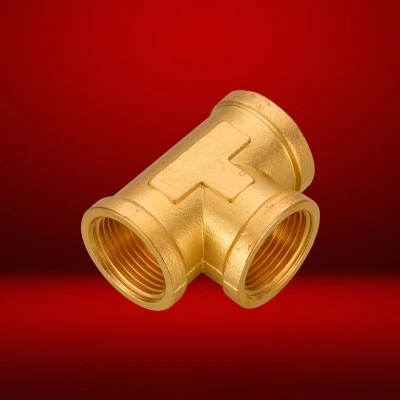
Industrial plumbing systems demand uninterrupted performance, efficiency, and reliability. One often underestimated element in maintaining these systems is the regular inspection of brass fittings. These components are essential for connecting plumbing pipes and fittings, ensuring leak-proof and pressure-safe operations in diverse environments. Over time, even the most durable fittings are subjected to wear, corrosion, or stress. That’s why routine inspection isn’t just best practice—it’s essential.
This blog highlights the importance of timely assessments for brass components, especially in industrial environments where failure can lead to significant downtime and costs. As a reputed brass components manufacturer in Jamnagar, Atlas Metal emphasizes the role of inspections to promote longevity, safety, and operational continuity.
Brass fittings are widely used in industrial systems due to their excellent machinability, corrosion resistance, and compatibility with various fitting applications. Common types include elbows, tees, unions, and brass pipe couplings, which serve as connectors in complex pipelines.
These fittings are preferred for high-temperature and high-pressure systems, making them indispensable in industries like manufacturing, chemical processing, oil & gas, and water treatment. They also function as valve brass components, controlling the flow of liquids or gases.
Knowing their characteristics, including strength, thermal conductivity, and resistance to scaling, helps industrial teams understand why ongoing inspection services are necessary. These qualities make brass a durable material, but not one that is immune to long-term stress and exposure.
Even the best-quality brass pipe couplings can degrade over time due to factors like mechanical stress, temperature variation, corrosion, or installation faults. Skipping regular inspections could result in:
- Leakage or pressure drops
- Pipe burst or system failure
- Contamination of fluid or gas lines
- Reduced system efficiency
In large-scale industrial facilities, such failures can lead to extensive downtime and financial loss. Regular inspection services help in identifying early signs of damage, corrosion, or misalignment, allowing timely replacements or repairs.
Atlas Metal, being a responsible brass components manufacturer in Jamnagar, always recommends a proactive inspection approach, especially in industries that handle hazardous or high-pressure media.
Inspections should focus on critical areas where plumbing pipes and fittings are under stress or regularly exposed to harsh substances. Key inspection points include:
- Joint Connections: Where brass pipe couplings link different segments.
- Valve Areas: Where valve brass controls flow and pressure.
- Threaded Fittings: Likely points for loosening or leakage.
- Corrosion-Prone Zones: Areas exposed to chemicals, salt, or high humidity.
Visual checks, physical pressure testing, and tightness verification should be performed routinely. Understanding where failures are most likely to occur helps optimize fitting applications for longevity.
A comprehensive inspection should include the following methods:
- Visual Inspection: Detects signs of surface corrosion, cracks, and leaks.
- Pressure Testing: Checks for leaks or bursts under operating conditions.
- Ultrasound or Radiographic Testing: Useful in identifying internal flaws.
- Torque Measurement: Ensures threaded plumbing pipes and fittings are properly tightened.
Technicians should be trained to use these tools efficiently, and schedules should be logged for traceability. Partnering with certified inspection services enhances both safety and compliance.
Regular inspections bring several long-term advantages to any industrial operation:
- Prevents Unexpected Downtime
- Extends Component Life
- Improves System Efficiency
- Ensures Safety Compliance
- Reduces Long-Term Costs
For instance, catching early wear in a valve brass connector prevents larger malfunctions later. This proactive approach not only saves time and money but also enhances credibility in regulatory audits and performance evaluations.
Industrial environments pose several challenges:
- Limited Access to Fittings in complex pipelines
- High Operational Pressure that discourages shutdowns
- Lack of Documentation on inspection schedules
- Overlooked Minor Issues like hairline cracks
Overcoming these challenges involves:
- Creating detailed inspection plans
- Scheduling during routine maintenance windows
- Using portable and advanced inspection tools
- Keeping updated records
By addressing these obstacles, industries can ensure that all plumbing pipes and fittings continue to perform reliably.
Once issues are identified, corrective steps should follow immediately. Recommended practices include:
- Replacing worn-out or corroded brass pipe couplings
- Retightening or resealing threaded components
- Applying corrosion-resistant coatings if required
- Lubricating moving parts in valve brass assemblies
Following these measures enhances durability and prevents recurrence. Moreover, establishing a recurring inspection and maintenance schedule solidifies operational standards across departments.
As a trusted brass components manufacturer in Jamnagar, Atlas Metal doesn’t just supply products—it supports end-users with technical know-how, guidance on installation, and suggestions for regular inspection services.
Our precision-crafted brass pipe couplings and valve brass fittings undergo stringent quality checks, making them dependable for critical fitting applications. We also assist clients in designing inspection checklists and choosing the right tools for their unique operational conditions.
With decades of experience in supplying high-performance plumbing pipes and fittings, Atlas Metal remains committed to supporting your industrial systems with reliability and integrity.
The importance of regular inspection in industrial plumbing systems cannot be overstated. Whether you’re dealing with water lines, chemicals, or gases, ensuring your brass pipe couplings, valve brass, and other fittings are in top condition is critical for efficiency, safety, and cost control.
Through consistent inspection services and well-planned maintenance, organizations can extend component lifespan, avoid breakdowns, and comply with industry regulations. For reliable products and expert guidance, Atlas Metal continues to lead as the go-to brass components manufacturer in Jamnagar.
What are the signs of brass fitting failure?
Common signs include discoloration, leaks, low system pressure, and cracks in brass pipe couplings or around joints.
Can visual inspection alone be sufficient?
Visual checks are useful but should be supplemented with pressure and ultrasonic testing for deeper insight.
What happens if fittings are not inspected regularly?
Neglecting inspection can lead to sudden leaks, contamination, or even complete system failure, especially in critical fitting applications.
Are all brass fittings corrosion-resistant?
While brass has good corrosion resistance, not all fittings are equally protected. Material quality, coating, and usage environment play a role.

